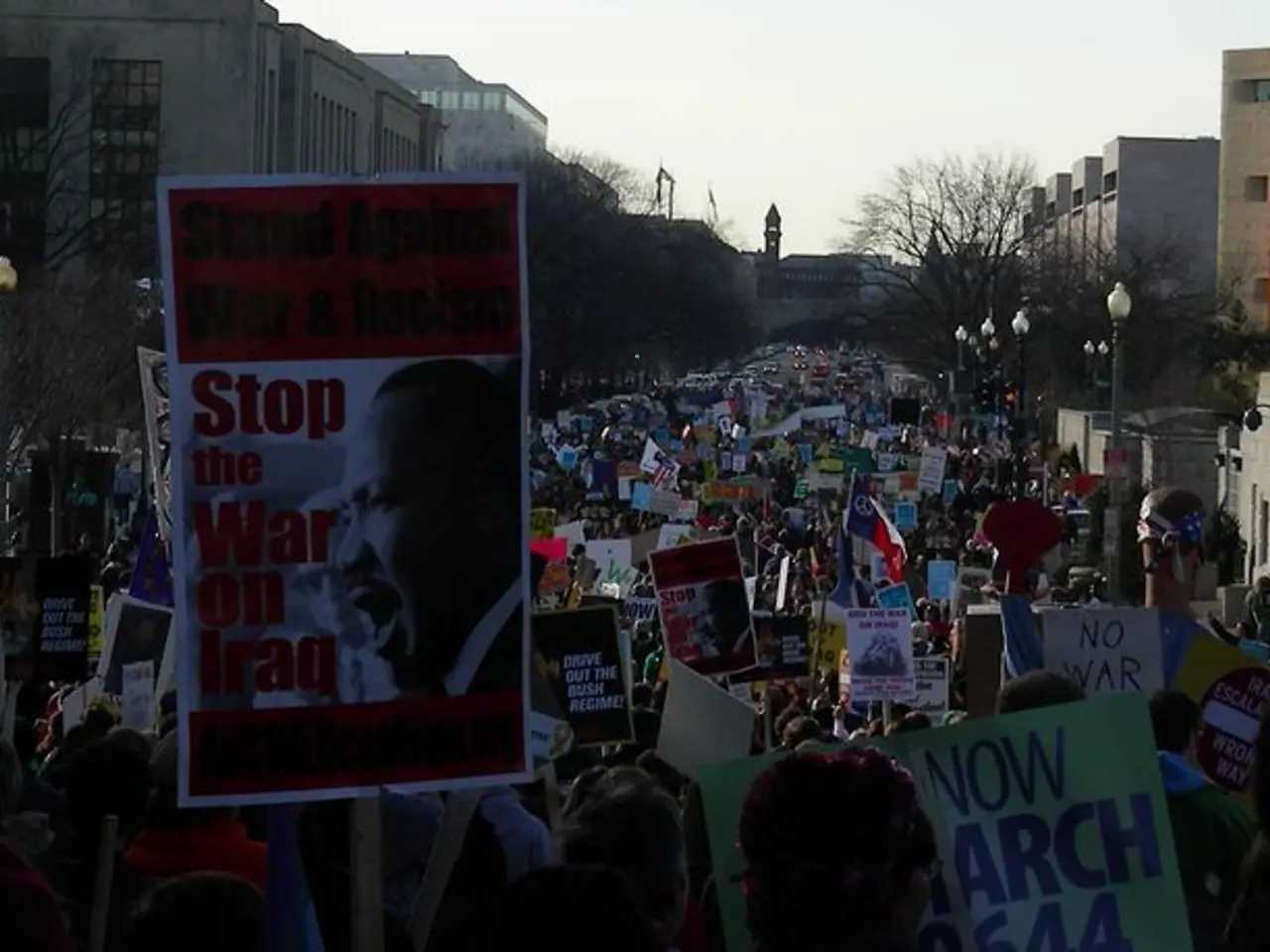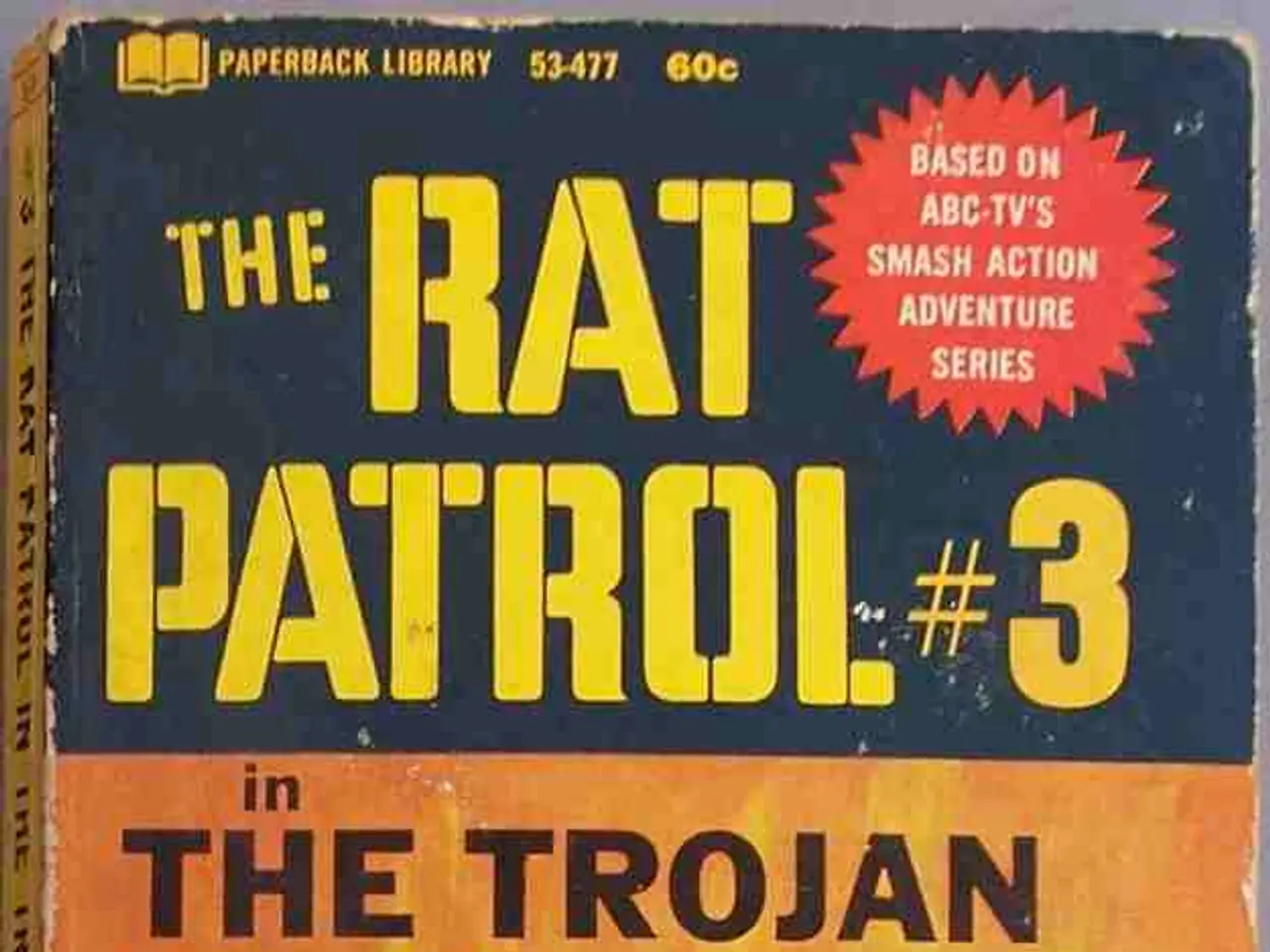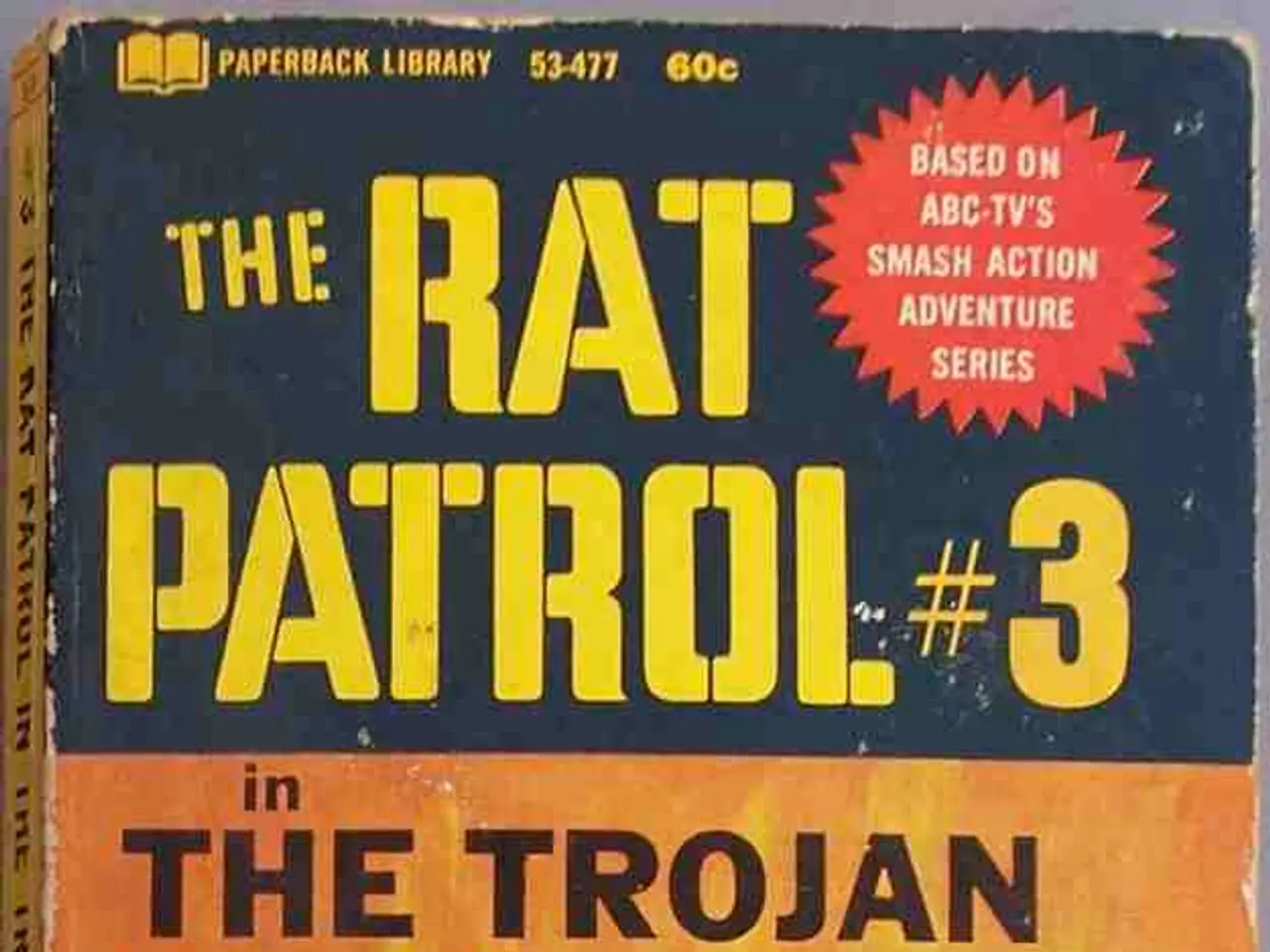Hotel inhabitants, residing in a migrant facility, displayed affectionate gestures from their window, capturing on film the skirmishes between demonstrators and police force unfolding in the streets below.
In recent months, the UK has seen a surge of protests against the use of hotels to house migrants and asylum seekers, particularly in cities like Islington, London, Manchester, and Newcastle. These demonstrations, often organised by local residents, have been driven by concerns about safety and community impact.
The protests began escalating around mid-2025, following specific incidents such as an asylum seeker charged with assault in Epping, which sparked demonstrations outside hotels used for migrant accommodation. Since then, the protests have spread nationwide, with some turning aggressive when protesters confront opposing groups or counter-protesters.
One such protest took place outside the Thistle City Barbican Hotel in Islington, London, which has an exclusive use contract with the Home Office. In Manchester, clashes occurred between approximately 600 protesters organised by Britain First and around 400 counter protesters led by Stand Up To Racism. Greater Manchester Police made two arrests during the confrontation.
In Newcastle, protests also took place outside the New Bridge Hotel, with chaotic scenes unfolding. The organisers of the counter-protest stated that far-right and fascist groups aim to bring their message of hate to the city. One student involved in the protest stated that he wants migrants to "feel safe" in the UK.
Similarly, a large group of masked protesters dressed in black and chanted "we are anti-fascist" outside a hotel near Heathrow airport, where the London hotel recently announced it was changing from a mixed accommodation hotel to one for male asylum seekers. Disgruntled locals approached the asylum hotel in Stanwell with their signs, and chants of "protect our kids" were heard.
The UK government has responded by promising to end the use of hotels to house migrants, indicating acknowledgment of the tensions these arrangements cause in local communities. The Home Office aims to close all asylum hotels by the end of this Parliament. A Home Office spokeswoman stated that since the Government took office, over 35,000 people with no right to be in the UK have been removed.
However, the situation remains volatile, with both protests and counter-protests reflecting deep divisions over immigration policy and community impact. Online groups such as Patriots of Britain and Together for the Children voiced their support for the demonstrations, while groups like Stand Up To Racism organised counter-protests.
Historically, tensions around migrant housing intersect with broader social and racial issues. For example, in London, communities such as British Bangladeshis have a history of mobilizing against racial violence and discrimination, as seen in earlier demonstrations linked to the murder of Altab Ali in 1978 and subsequent anti-racist activism. While this is a somewhat different context, it reflects the longstanding complexities around immigration, race, and local community relations in UK urban areas.
The Metropolitan Police confirmed there had been nine arrests during the unrest, including seven on suspicion of breaching the Public Order Act. Police have also formed new units to monitor social media to anticipate unrest related to migrant accommodations, although this has raised concerns about free speech.
In summary, the protests are part of a broader pattern of local and national unease related to asylum seekers housed in hotels, particularly after incidents that provoke fear among residents. Cities like Islington, Manchester, and Newcastle have become focal points due to the presence of migrant hotels there and the ensuing community reactions. As the UK government works towards ending the use of hotels for migrant accommodation, it remains to be seen how this will impact the ongoing protests and the broader debate around immigration policy in the UK.
[1] BBC News, "Protests against asylum seeker hotels", 2025 [2] The Guardian, "UK protests against migrant hotels escalate", 2025 [3] Sky News, "Newcastle protests against migrant hotel", 2025 [4] Tower Hamlets Council, "History of anti-racist activism in Tower Hamlets", 2021 [5] Independent, "Manchester protests against migrant hotel", 2025
- The recent surge of protests in cities like Islington, London, Manchester, and Newcastle, primarily focusing on the use of hotels to house migrants and asylum seekers, has been classified under general-news and crime-and-justice categories in many media outlets, such as BBC News, The Guardian, and Sky News.
- As the ongoing protests over migrant accommodation in hotels continue across the UK, they have been influencing the political landscape, further expanding the discussions on immigration policy, safety concerns, and community impact, as reflected in articles from various news sources, including those by BBC News, The Guardian, and The Independent.








